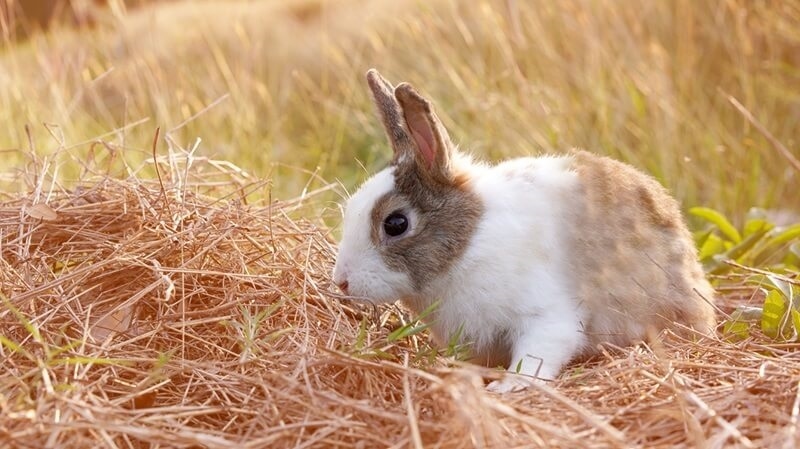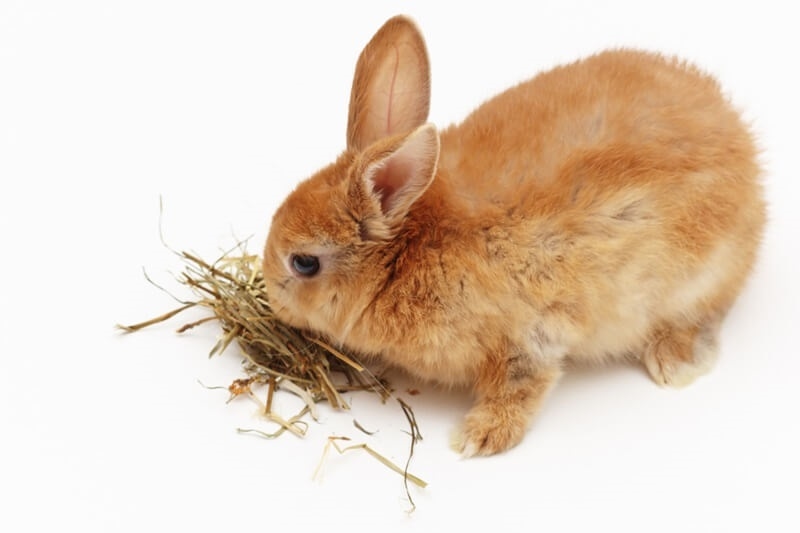
Rabbits are unique pets that have delicate digestive systems, and nothing is healthier for them than hay. The importance of hay in a rabbit's diet cannot be overstated—it is central to their daily diet and the key to healthy digestion, healthy teeth, and good health overall. As a rabbit owner, it is important to understand how hay contributes to the needed fiber in rabbits' diets, what the best hay for rabbits is, and what a reasonable rabbit hay feeding plan is that promotes long-term health.
In this blog, we are going to dive deep into the role hay plays in your rabbit’s diet, with topics ranging from digestion to cost-effective options. Once you're finished reading this, you'll have a great understanding of how hay fuels your bunny's body, enhances preventative care for health issues, and provides a happy, stimulated life.
Regarding rabbit diet and nutrition, hay always precedes everything else. The importance of the rabbit hay diet arises from its unparalleled position in delivering the optimum levels of fiber that the rabbits require. Fiber is not a choice for rabbits—it's a lifeline. Without sufficient hay, rabbits risk digestive blockage, obesity, and overgrown teeth.
Veterinarians and animal scientists stress that 80–90% of the rabbit's diet should be hay. Hay's long fiber ensures that food moves through the digestive tract, avoiding gastrointestinal stasis—a potentially deadly condition. This is where fiber needs in the rabbit diet come into play, and hay is the only diet item that can provide those needs appropriately.
In addition to digestion, hay also stimulates natural chewing, which is necessary to grind down ever-growing teeth. Getting the finest hay for rabbits and providing it regularly guarantees their well-being remains on course.

When choosing the ideal hay for rabbits, not all hays are equal. Freshness, odor, and texture are important, since stale or dusty hay can result in respiratory problems or flat-out refusal on the part of your bunny. The most popular types of hay for rabbits are:
The gold standard is commonly regarded as Timothy hay. It's high in fiber, fairly low in protein, and is available in three cuttings:
Softer and sweeter-smelling than Timothy hay, making it great for fussy eaters. Still packed with top-quality fiber for digestive health, hay supports in rabbits.
Meadow hay, also varied in texture and make, can have several types of grass in it, which makes for fascinating variety in a rabbit's everyday diet.
Alfalfa is high in protein and calcium. It's good for developing bunnies under six months but not for the adult rabbits, as it can contribute to obesity or kidney problems.
Freshness must be your concern in purchasing hay. Opt for green color, a sweet aroma, and a crisp texture. If budget is an issue, there are numerous budget-friendly rabbit hay options to find at discount prices online in bulk or through farm suppliers.
A rabbit's digestive system is geared towards a high-fiber, low-fat diet. Hay is therefore not negotiable for satisfying rabbit diet fiber requirements. Fiber aids in a process termed "hindgut fermentation," whereby good bacteria in the rabbit's cecum ferment food. In a lack of sufficient fiber:
Hay feeding also enables rabbits to graze all day, simulating their natural eating routine. Free-choice hay provision guarantees your pet has fiber at all times for efficient digestion and tooth wear.
Being aware of what hay to purchase is one thing—being aware of how to serve it is another. A rabbit hay feeding guide assists in organizing daily care:
When hay is combined with a small amount of pellets or fresh greens, it provides a balanced diet, but hay should always be the primary component of their diet. This rabbit hay feeding guideline promotes weight management, aids digestion, and encourages good dental health.
This isn't just marketing hype—rabbit digestive health hay has a scientific foundation. Rabbits on unlimited hay diets have fewer gastrointestinal problems. Let’s look at how hay supports the rabbit's digestive system:
Haloing hay for pellets or treats breaks this delicate balance. One day without sufficient hay can be enough to lead to digestive problems. Therefore, providing excellent-quality hay every day is the best method of prevention for gut health and digestion.
While not all owners can afford the top brands routinely, there are budget-friendly hay options that are still high quality. Buying bulk from farms and feed supply shops usually saves quite a bit of money while maintaining quality. There are also several online retailers with subscriptions that will send boxes of fresh hay to your door regularly and generally at lower prices.
Owners can find the sweet spot between price and nutritional value by discerning and purchasing in bulk. While the less expensive types will allow you to always have hay available for your rabbit to eat and keep your costs down, they will still keep your rabbit healthy.
While digestive and dental health are the primary reasons for the emphasis on the value of a rabbit hay diet, the benefits go further:
In consensus with safe vegetables and measured pellets, hay provides the foundation of a full rabbit care program.
You can’t deny hay's important role in rabbits' diet. From providing dietary fiber for rabbits to keeping rabbit digestive health, the daily provision of fresh, nutritious hay protects each facet of your rabbit's well-being. It does not matter whether you spend your money on good hay for rabbits or are smart and economical about rabbit hay; consistency is the real secret.
With the help of a reliable feeding plan for rabbit hay, you will not only protect your bunny from serious life-threatening health conditions, but even more importantly, provide a lifestyle that is aligned with their instincts. For every rabbit owner pursuing a happy, healthy rabbit, hay is not food: it is the bedrock for health and longevity.
This content was created by AI